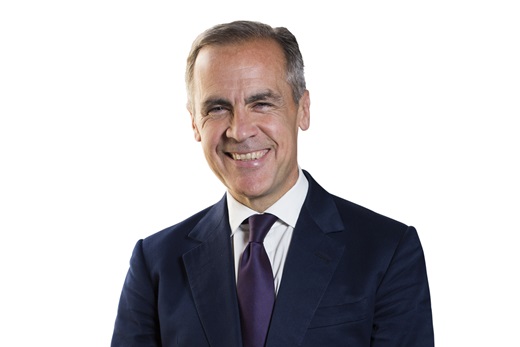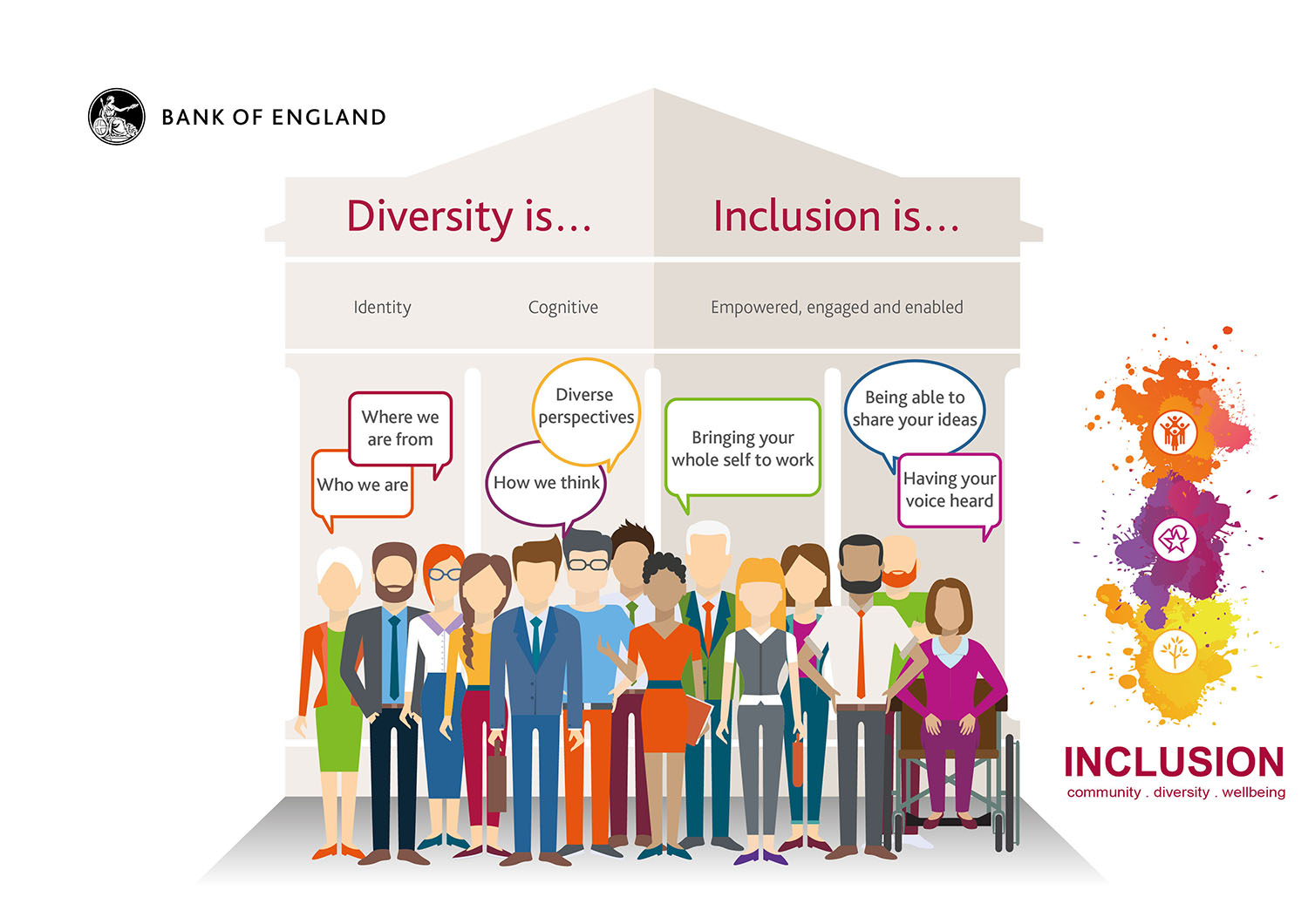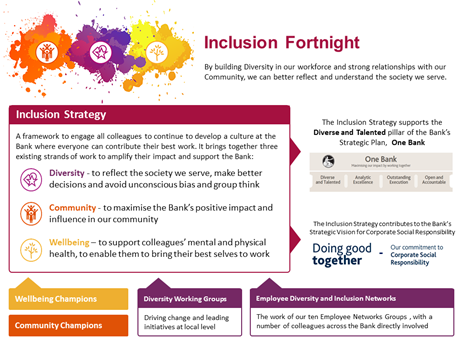In this speech, the Governor talks about what it means to be diverse and inclusive, why it’s important to the Bank and how we are making our workplace more diverse and inclusive.
He talks about two types of diversity: who we are (identity diversity, such as gender or ethnicity) and how we think (cognitive). He also describes what we mean by inclusion - making sure everyone can take part, is able to speak up and have their voice heard.
He describes why we need to take diversity seriously. The more ideas we can share, the better we will be at making decisions. If we reflect the diversity of the country, we are also more likely to be trusted and will be better at speaking in a way that everyone understands.
The Governor also shares some of the things we are doing to improve our diversity and inclusion, including recruiting from a wide range of disciplines, offering more part time work and giving people opportunities to learn new skills. We have also given colleagues a place to voice different opinions, such as our staff blog – Bank Underground and through our flagship seminar series which invites people from different backgrounds, such as sport and the arts, to give talks on their experiences (link). Finally, the Governor explains how we are ensuring our communications reach a wider variety of people, and how we are using different channels, such as KnowledgeBank, to help people better understand our role and what we do.



